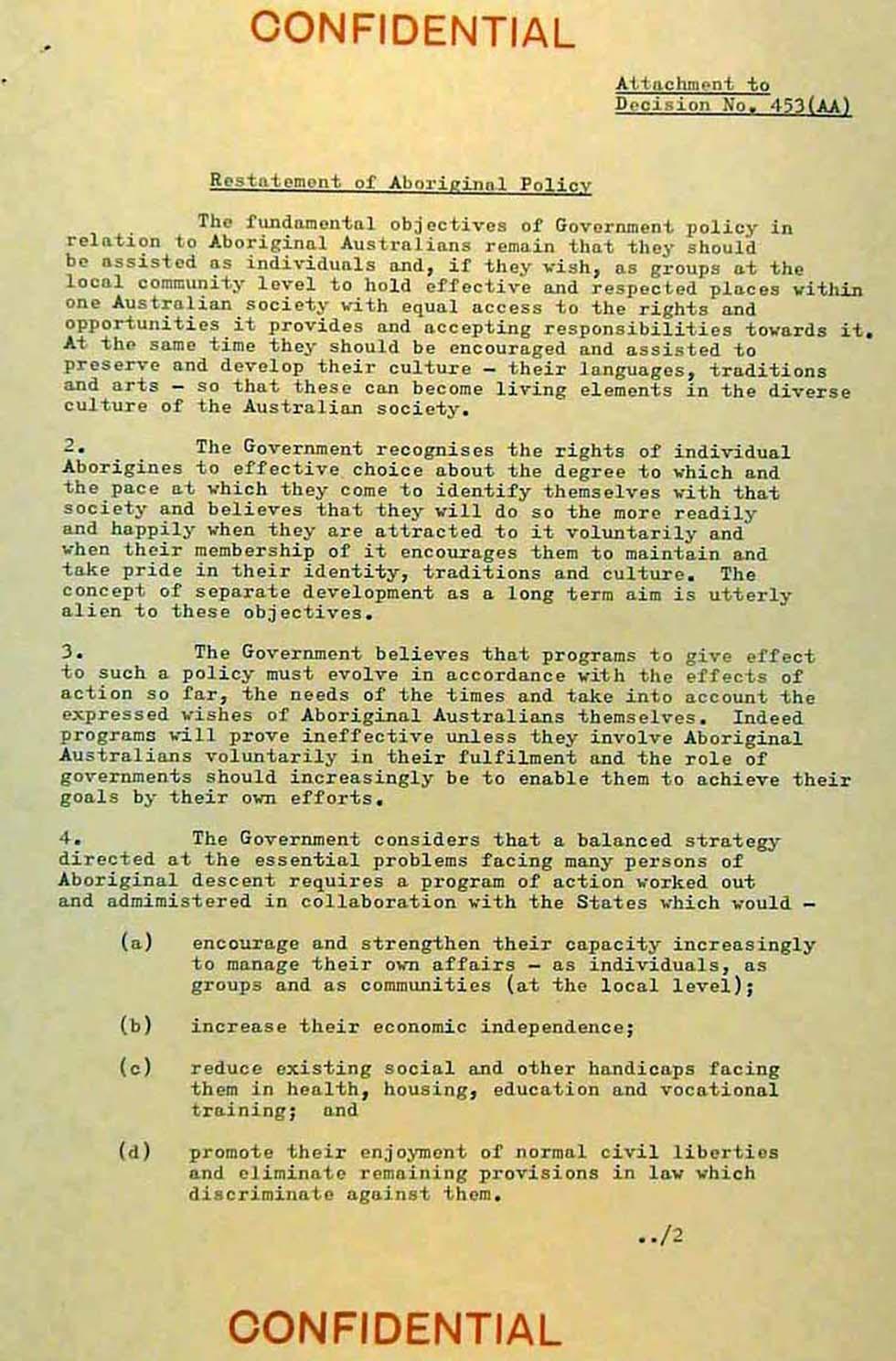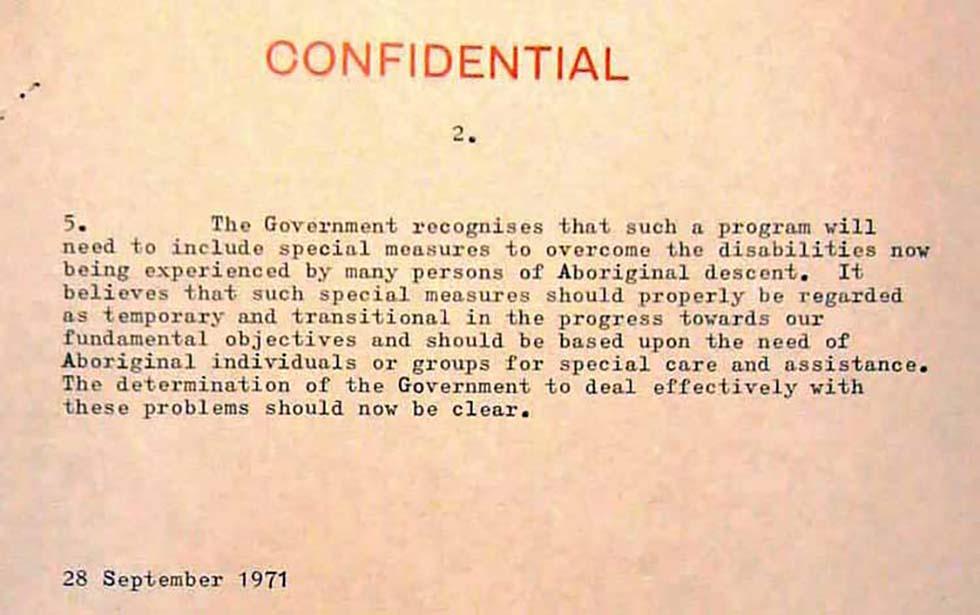

Aboriginal and Torres Strait Islander people should be aware that the National Archives' website and collection contain the names, images and voices of people who have died.
Some records include terms and views that are not appropriate today. They reflect the period in which they were created and are not the views of the National Archives.



[Page 1.]
[Header and footer in large red capital letters:]CONFIDENTIAL
[Underlined:] Attachment to Decision No. 453(AA)
[Underlined heading:] Restatement of Aboriginal Policy
The fundamental objectives of Government policy in relation to Aboriginal Australians remain that they should be assisted as individuals and, if they wish, as groups at the local community level to hold effective and respected places within one Australian society with equal access to the rights and opportunities it provides and accepting responsibilities towards it. At the same time they should be encouraged and assisted to preserve and develop their culture – their languages, traditions and arts – so that these can become living elements in the diverse culture of the Australian society.
2. The Government recognises the rights of individual Aborigines to effective choice about the degree to which and the pace at which they come to identify themselves with that society and believes that they will do so the more readily and happily when they are attracted to it voluntarily and when their membership of it encourages them to maintain and take pride in their identity, traditions and culture. The concept of separate development as a long term aim is utterly alien to these objectives.
3. The Government believes that programs to give effect to such a policy must evolve in accordance with the effects of action so far, the needs of the times and take into account the expressed wishes of Aboriginal Australians themselves. Indeed programs will prove ineffective unless they involve Aboriginal Australians voluntarily in their fulfilment and the role of governments should increasingly be to enable them to achieve their goals by their own efforts.
4. The Government considers that a balanced strategy directed at the essential problems facing many persons of Aboriginal descent requires a program of action worked out and administered in collaboration with the States which would –
(a) encourage and strengthen their capacity increasingly to manage their own affairs – as individuals, as groups and as communities (at the local level);
(b) increase their economic independence;
(c) reduce existing social and other handicaps facing them in health, housing, education, and vocational training; and
(d) promote their enjoyment of normal civil liberties and eliminate remaining provisions in law which discriminate against them.
../2
[Page 2.]
[Header in large red capital letters:] CONFIDENTIAL
[Page number] 2.
5. The Government recognises that such a program will need to include special measures to overcome the disabilities now being experienced by many persons of Aboriginal Australian descent. It believes that such special measures should properly be regarded as temporary and transitional in the progress towards our fundamental objectives and should be based upon the need of Aboriginal individuals or groups for special care and assistance. The determination of the Government to deal effectively with these problems should now be clear.
28 September 1971
This Cabinet document sets out the Australian Government’s 1971 policy on ‘Aboriginal Australians’. This policy marks a major departure from previous government policies which aimed to assimilate First Australians into white society.
Learn how to interpret primary sources, use our collection and more.
